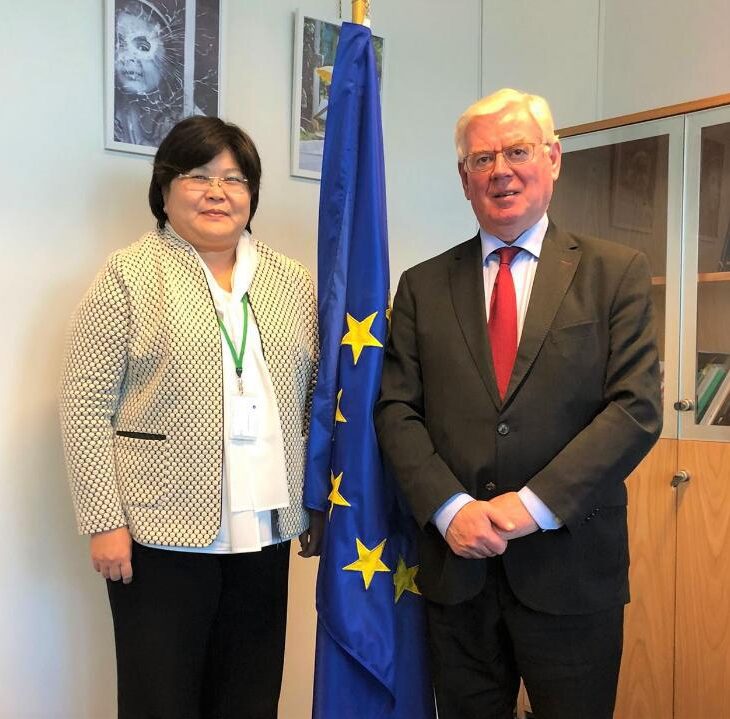ASTANA – Kazakh Commissioner for Human Rights Elvira Azimova addressed the current cooperation agenda with European Union (EU) partners during her working visit to Brussels, reported the Commissioner’s press service on Sept. 29.

Elvira Azimova, Commissioner for Human Rights in Kazakhstan and EU Special Representatives for Human Rights Eamon Gilmore. Photo credit: Commissioner for Human Rights in Kazakhstan press service
Azimova met with officials from the European Commission and the European Parliament (EP) and experts from several European institutions engaged in human rights protection.
European politicians were briefed on the recent adoption of the new constitutional law on the Commissioner for Human Rights, which aims to strengthen the competence of an Ombudsperson in Kazakhstan and increase the efficiency of its future activities. They also supported direct contact with the country’s National Center for Human Rights.
During the meetings with the EU Special Representative for Central Asia Terhi Hakala and the EU’s Special Representative for Human Rights Eamon Gilmore, Azimova discussed enhancing collaboration in democracy and human rights protection based on Kazakhstan and the EU’s 2015 Enhanced Partnership and Cooperation Agreement.
Kazakhstan’s Commissioner for Human Rights discussed top priority initiatives to strengthen the fundamentals of the rule of law in the country with the Deputy Managing Director of the European External Action Service for the Eastern Partnership, Russia, the Caucasus, and Central Asia, Luc Devigne.
Azimova addressed issues of cooperation between Kazakhstan and the EU in the sphere of human rights at a meeting with members of the EP’s Committee on Foreign Affairs (AFET), the Sub-committee on Human Rights (DROI), and the Delegation for Collaboration with Central Asia and Mongolia (DCAS). The parties agreed to have additional online conversations with the DROI leadership on Kazakhstan’s ongoing reforms. EP member Karsten Luke said the European Parliament follows Kazakhstan’s democratic reforms and values Astana’s stance on current international issues.
During meetings, Azimova and the EU partners also discussed measures on tackling domestic violence, such as the police introducing a risk assessment system to prevent relapse.
Additionally, Azimova met with specialists from the International Partnership for Human Rights and the World Organization Against Torture to discuss international collaboration in preventing torture. The European interlocutors expressed interest in expanding cooperation with Kazakhstan’s Ministry of Justice in connection with transferring a new mandate to this state body from the country’s law enforcement agencies to rectify criminal law and criminal procedure-related legislation.
